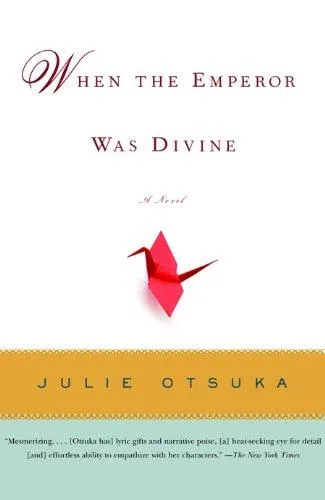
RAndy's Book Reviews
Providing book reviews from a couple of bookaholics

When the Emperor Was Divine
Synopsis: When the Emperor Was Divine tells the story of a Japanese family living in Berkeley in the wake of the attack on Pearl Harbor. The night of the attack on Pearl Harbor the FBI comes for the father and takes him away. Shortly after, while visiting the library, the Mother sees a sign indicating that all Japanese residents were to be relocated. She hurriedly packs a few belongings for her son and daughter before they are placed on a train bound for Utah. What follows is the story of a Japanese family as they lived in one of the many internment camps that appeared across America during World War II.
My Thoughts: Devastation. Heart break. Pity. Shame. Anger. These are just some of the emotions I experienced in the first few pages of When the Emperor Was Divine. It’s a strange thing having grown up in America, learned United States history, and still barely knowing how many people suffered on US soil during the war, all because of where they were from. I struggled to rationalize how the US approved this treatment of the Japanese-Americans, while at the same time fighting in Germany and Poland to free the Jews from similar (though arguably much, much, much worse. Don’t come for me) conditions. No one ever said America was perfect, but these dark moments in our history paint our efforts during the war in a new light.
The book itself is written beautifully. There is a sparseness to the writing that is both a great example of Japanese literature and also matches the bleak tone of the story. The reader gets the story from three perspectives; the Mother, the Daughter, and the Son. Each character is fully their own person and the reader knows instantly who is telling the story. The Mother’s focus is on practicality, taking care of herself and her children, and making sure they have what they need. The Daughter is just entering puberty and is struggling to find her place in the world where she isn’t quite an adult but doesn’t feel like a kid anymore either. The Son’s portion is perhaps the most engaging. He describes the conditions of their bunker house in Utah, then in the next sentence talks about a little tortoise he tried to save. He’ll be struggling with the bitter cold and lack of flora, then in the next moment be fascinated by a little bulb sent to him by an old classmate. He encompasses both childlike wonder in the face of a grotesque injustice, while at the same time striving to be helpful and taking care of his Mother and Sister however he can.
When I finished reading this book I found myself wondering why I had bothered reading it at all. It was short, bleak, and painful. There was no positive outcome. No retribution against a system that abused thousands of Japanese citizens. This family suffered, and then continued to suffer. But I realized that is the point of books like this. Sometimes we need someone to grab us on both sides of our head, shake it around a bit, and then force our eyes to see something specific. We suffer through this reading because the people this story is about truly suffered. This story, and others like it, help the reader grow in empathy and encourage them to not make the same mistakes again.